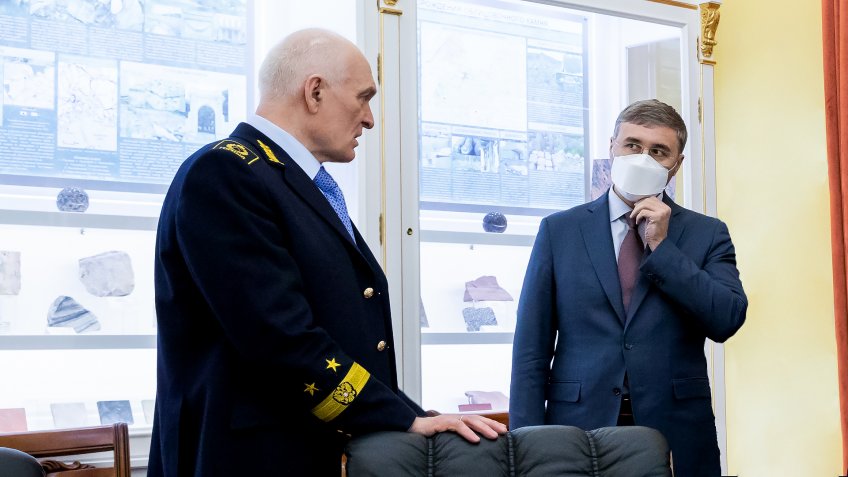The ranking agency RAEX-Analytics has completed the collection of data for the subject ranking of Russian universities in various areas of training. Does this mean that the country will finally have an objective chart, which will allow applicants to choose the best development paradigm for themselves?
To get the answer to this question, we need to go back 9 years and remember the May decrees of the President, which Vladimir Putin signed in 2012. One of them, as everyone knows, was devoted to measures to implement state policy in the field of education and science. The government was instructed to “ensure that at least five Russian universities” join the list of 100 leading global universities by 2020.
In order to implement this initiative, the Ministry of Education and Science has launched a program entitled “5-100” and made a list of the most promising universities, which, as officials have decided, had the best chance to break into the “league of the best”. It goes without saying that they were allocated a lot of money for potential expansion. The annual subsidies for promotion in the international ratings were over 10 billion rubles (at first they were divided among 15 universities and then the number was increased to 21). However, no one thought it necessary to explain to the public exactly what criteria were used to select these particular institutions.
As a result, after several years, it became clear that there would be no significant breakthrough. The beneficiaries of the "5-100" program either stagnated or improved their positions so insignificantly that it did not matter at all. As before, only Moscow State University was included in the top 100 of the three most prestigious charts in the world - the British QS, the American THE, and the Shanghai ARWU - which, by the way, was not a participant in the project and did not receive any funds from the state to promote it abroad.
But is that a problem? Not at all. As the saying goes, if the mountain does not go to Mohammed, Mohammed goes to the mountain. In our case, if you cannot convince the recognized ranking agencies that you are worthy of inclusion in the elite, you need to establish your own. And this agency, by virtue of patriotic feelings, will be much more favorable to Russian universities.
It was a coincidence (the author is sure that this is a coincidence, of course, there was no intent), but in 2017 the Association of Rankings Compilers, whose founders include the RAEX Group, released the Moscow International University Ranking “Three University Missions”. Three of our institutions of higher education are now in its top 100. Of course, they are not enough to report on the fulfillment of the President’s decree of May, but they are already something.
This was not the first attempt of RAEX to try on the role of the country’s main expert in the field of university ranking. Back in 2012, the company presented its first ranking of universities in Russia, the attitude to which, just like to the global chart, is far from unequivocal in the scientific and educational community.
“If we talk about the ranking of the best universities in Russia, then the assessment of their competence, as well as their ranking, is the task of the Ministry of Education and Science and the Minister personally. It is he who is personally responsible for the transparency and reliability of the monitoring of the activity of higher education institutions from the perspective of the tasks set by the state. It should be understood that universities are engaged in educational activities, and the Ministry is the only possible arbiter here, first dictating the rules of the game and then judging by them. But there is the next level of mandatory performance criteria: the evaluation of professional communities, which can and should be applied to graduates who have already been tested by industry, or more precisely, to their level of competence. Any other platforms are subjective. The distrust of the attempts of private structures to rank higher education institutions by seniority is logical, because those are unable to create a unified methodology for different industries and life activities in general, and simply adjust the ranking algorithms to the interests of the founders of the agencies or customers. The result is a profanation of the system,” says Vladimir Litvinenko, Rector of St. Petersburg Mining University (this university has been in the top 20 of QS subject rankings for four years in a row in the field of engineering - mining and mineral extraction).
Let’s take a look at what standards RAEX is guided by in compiling its ranking tables. For example, the agency considers the size of the endowment fund of the university to be important. I believe that the overwhelming majority of our readers have no idea what this means, so I will explain. In the West, it has long been common practice for wealthy alumni to donate large sums of money to their alma mater. But the university itself has no right to dispose of them. It is obliged to entrust the money to a credit institution, which will then transfer the interest to the higher education institution’s accounts, so that it can spend it at its discretion.
Now the endowment has become a real headache in Europe, because the deposits in many countries have gone into deficit. That is, in some cases it’s not the bank that pays you the interest on the deposit, but you pay the bank for the happiness of using its services.
Thank God, it has not come to this yet, but according to RAEX, for the university to get half a billion rubles a year from a donor for development, the rector has to attract about ten billion. The question arises: why complicate the task of finding investors, which is already complicated? For the ranking agency to mark the box?
Let’s take a look at what standards RAEX is guided by in compiling its ranking tables. For example, the agency considers the size of the endowment fund of the university to be important. I believe that the overwhelming majority of our readers have no idea what this means, so I will explain. In the West, it has long been common practice for wealthy alumni to donate large sums of money to their alma mater. But the university itself has no right to dispose of them. It is obliged to entrust the money to a credit institution, which will then transfer the interest to the higher education institution’s accounts, so that it can spend it at its discretion.
Now the endowment has become a real headache in Europe, because the deposits in many countries have gone into deficit. That is, in some cases it’s not the bank that pays you the interest on the deposit, but you pay the bank for the happiness of using its services.
Thank God, it has not come to this yet, but according to RAEX, for the university to get half a billion rubles a year from a donor for development, the rector has to attract about ten billion. The question arises: why complicate the task of finding investors, which is already complicated? For the ranking agency to mark the box?
“A number of the criteria that guide private structures in ranking universities are in fact aimed at destroying the content and quality of higher education in the whole country, at distorting the real tasks that universities face. I am referring primarily to the focus on distance learning and work with international platforms, aligned with the interests of certain universities. All these numerous examples clearly show that the authors of this methodology either do not know the real needs of our economy, or maybe even live outside the country. Engineering education needs completely different programs and market-understandable digital indicators, not dubious formulas and virtual indicators,” says Vladimir Litvinenko.
In his opinion, the level of a particular higher education institution is most clearly reflected in the subject rankings, as universities compete with “their” peers. Comparing medical, liberal arts, and technical universities is simply incorrect; it is practically impossible to get an objective picture. Judge for yourself, how do you compare a doctor and a drilling supervisor? How to understand, who is the best specialist? Obviously it is nonsense.
It would also be quite presumptuous to claim that the RAEX ranking will be a breakthrough. In order to do so, the company would have to make a serious transformation in its evaluation methodology. In its current form, it is simply useless.
“The Ministry of Science and Higher Education has divided universities into three categories. Despite its many flaws, this ranking is taken seriously by the rector community. This mechanism needs to be improved, and it should be the indicator that influences funding and state support. The Ministry is able to do it, using the accumulated experience,” the Rector of Mining University is sure.
In conclusion I would like to remind you that last year the program “5-100” departed this life. Its effectiveness was close to zero, but in the eight years of its existence more than 80 billion rubles were spent on “improving the prestige of Russian universities”. Apparently, no one is going to report on where these funds have gone.
But this, as they say, is half the trouble. And here’s what’s really important. The “PRIORITY 2030” project is replacing the “5-100” and will be launched this year. My intuition tells me that if RAEX is entrusted with the mission of evaluating the competence of universities and ranking them, this program will repeat the sad fate of its predecessor.


